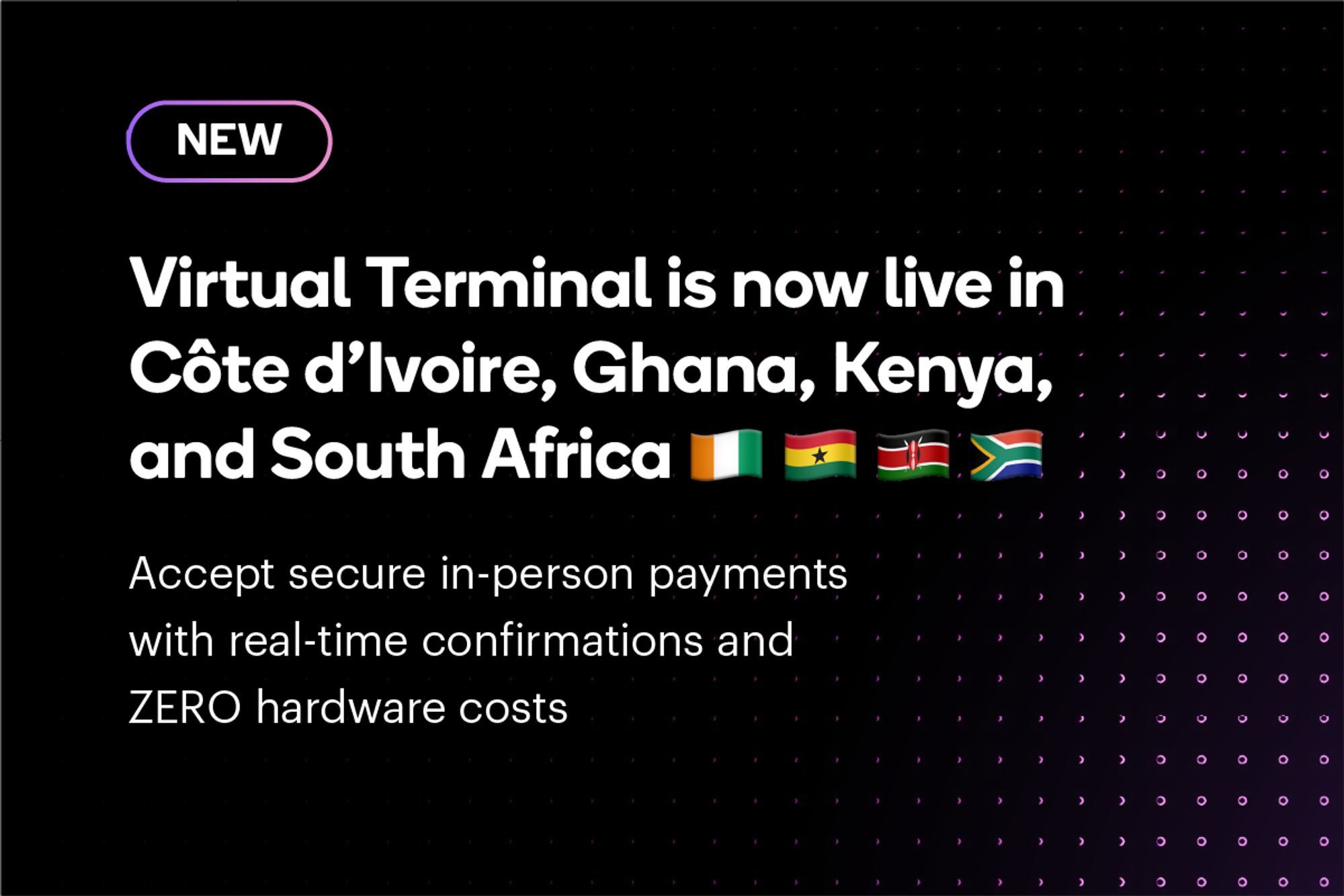

TGIF ☀️
If you’re looking for a sharp weekend watch, we’ve got you covered.
While you wait to be broken by the latest episode of HBO’s House of the Dragon, take a couple of minutes and find out how we at TechCabal created one of Africa’s most ambitious tech conferences Moonshot.
Our CEO Tomiwa Aladekomo—who is being held hostage by our Growth team until the video reaches 100,000 views—shares his inspiration for leading the creation of Moonshot, and what everyone can expect in the second edition holding later this year.
The stakes are high! Watch the full documentary and see how Moonshot is changing Africa.
Inside MTN’s move from telecoms to tech
Rebrands are not always met with open arms, especially when they set out to change the aesthetics users are used to. One such is MTN. In 2022, the 30-year-old telecom which is active in 21 African markets changed its logo from the bright white, yellow and red-lettered logo users had grown up looking at, to a black-and-yellow combo (no affiliation to the popular Wiz Khalifa song).
Many thought very lowly of this new minimalistic approach. “This new MTN logo is too drab. Haba!!” one user exclaimed. Another hilariously noted, “MTN’s new logo looks like they’re trying to save money and stop colored [sic] printing.”
In the same move, it changed its tagline from “Everywhere you go,” to “Yello”—which is probably a good move given how many times we at TC Daily have shaded the ISP for its downtimes and being everywhere but where you go.
Now back to the rebrand, it may have just seemed like a makeover for users, but MTN explained it holistically as a marker for its move from telecoms to tech. Here’s what Nompilo Morafo, MTN Group chief sustainability and corporate affairs officer, said at the time, “The new look is aligned to our evolution from a telecommunications company to a technology company underpinned by one simple and consistent yet striking brand.”
It’s been two years since Morafo made that statement and quite a bit has changed in how MTN runs its business. The company, for one, has turned its focus from just telecoms services to some of its other verticals like its mobile money unit, MoMo which is worth a whopping $5 billion, its WhatsApp-rival platform Ayoba, and Bayobab, a fibre-cable-facing unit. It’s also introduced Chenosis, a big data analysis vertical that will supposedly help it develop new products its users like.
Want to know how it’s going for MTN? Our Senior Reporter Frank Eleanya has the inside gist on MTN’s race to become a “techCo”.
Process payments smoothly with Moniepoint

And we’ll have processed almost 5,000 more by the time you’re done reading this. Your business payments can be one of them. Click here to sign up.
SEC says crypto companies must have offices in Nigeria
Shā Zhū Pán, a Chinese phrase for “pig butchering scam,” in which victims are tricked into investing cryptocurrency in fraudulent schemes, was first reported in 2020.
Today, these types of crypto scams are a dime a dozen and have gone global. In 2023, for example, Eze Harrison Arinze faked his identity and offered to help members of his Telegram community with crypto trades. He allegedly defrauded them of $592,000.
In Nigeria, regulators and lawmakers believe crypto regulation should be tighter.
This year alone, Nigeria’s Securities and Exchange Commission (SEC) has taken steps to regulate digital assets. First, it hiked registration fees for virtual asset service providers (VASP) to ₦150,000,000 ($98,000) to weed out bad players. Then, it introduced a 30-day Accelerated Regulatory Incubation Program (ARIP) for crypto companies to register for a VASP licence at an additional ₦2,000,000 ($1,300) fees and get approved in principle.
Now, the SEC is insisting that all VASPs must establish offices in Nigeria, and its CEOs or managing partners—who must be active in investments and securities—must also be resident in the country as part of their eligibility requirement under ARIP.
The play here: SEC wants to monitor crypto companies and their users. The organisation will cooperate with VASPs to access records of financials and monthly trading statistics of users.
SEC’s mandate for CEOs to reside in Nigeria reflects its push for accountability, especially after Patricia’s incident where absent local offices hindered founder liability. This aligns with the government’s efforts to control forex trades affecting the naira’s value.
Worth SEC’s troubles: ARIP participants who refuse to comply with this directive will be fined at least ₦5,000,000 ($3,276) for the first violation and ₦200,000 ($131) for penalties thereafter. Established players operating without SEC’s approval risk paying ₦20,000,000 ($13,104) in hefty fines.
Nigeria to launch research centres for emerging tech
It is commonplace in Nigeria for government agencies to establish frameworks and policies without following through with proper implementation. Last year, for example, the Federal Ministry of Communications and Digital Economy (FMCDE) announced the approval of a national blockchain policy. The policy signalled an open embrace from the government of blockchain-related innovation in the country. One year later, and there’s no clear path to implementation for the policy.
And now, the National Information Technology Development Agency (NITDA) has announced plans to establish research centres for “emerging technologies” across Nigeria’s six geopolitical zones. The research centres will focus on the Internet of Things (IoT), blockchain technology, unmanned aerial vehicles (UAVs), additive manufacturing, AI, and robotics.
The plan mirrors tech minister Bosun Tijani’s gathering of 120 AI researchers and stakeholders to develop the country’s AI framework. While AI—or maybe crypto— seems to be the new poster child of emerging tech in Nigeria, given the launch of Nigeria’s new large language model in April this year, there are still concerns about the implementation of the planned research centres.
If implemented correctly, experts believe the initiative can reduce the gaping hole in Nigeria’s unemployment rate, offering opportunities to young Nigerians in emerging tech fields like Blockchain and AI.
NITDA says the new initiative will develop sandboxes that will help startups in the thematic areas build and launch products.
Issue USD and Euro accounts with Fincra

Create and manage USD & Euro accounts from anywhere. Fincra allows you to issue accounts to your users, partners & customers to collect payments without the stress of setting up and operating a local account. Get started today.
Twitter rival, Koo, shuts down
In 2022, around the same time Elon Musk’s takeover of Twitter (now X) convinced everyone that the platform was dead or at least on its last legs, several apps popped up to take its place. There was Mastodon, an open-source software for microblogging; and Bluesky, an invite-only social app supported by Twitter founder Jack Dorsey.
One more promising app was Koo. In Nigeria, the India-based startup had made headlines more than a year before after it tried to become the poster boy for free speech following an eight-month Twitter ban in the country. At the height of the ban, Koo had more than 290,000 monthly active users in Nigeria but that number quickly dropped to 40,000 users once the ban was lifted. As one publication put it, Koo failed to seize the moment.
And now the moment has passed: Yesterday, TechCrunch reported that the startup was shutting down.
Koo’s popularity in India began after Twitter had a spat with the Indian government. Twitter declined the government’s “opaque requests for content removal” and claimed that the government threatened a shutdown and raids on the homes of its employees.
While this tussle went on between Twitter and the government, Koo silently built its audience, allowing them to express themselves freely in multiple local languages on its platform. Koo also positioned itself as an obedient child to the Indian government, promising to adhere to local regulations. This in turn brought a crop of many high-profile politicians on the platform. In that time frame, the Twitter look-alike also expanded its offerings to Brazil.
At its peak, Koo had more than 2.1 million daily active users and more than 10 million monthly active users.But Koo couldn’t expand its user base. Koo also struggled to make enough revenue, despite receiving over $60 million in funding from big-name investors, including Accel and Tiger Global.
Before the eventual shutdown, Koo’s founders tried to arrange a sale of the company. The company was in talks with Dailyhunt, an internet media startup valued at $5 billion, but discussions of the acquisition failed.
Could Koo have stayed afloat if it raised just one more funding round? Your guess is as good as ours. Koo founders say the current funding clime “got the better of us.”
Paystack Virtual Terminal is now live in more countries

Paystack Virtual Terminalhelps businesses accept secure, in-person payments with real-time WhatsApp confirmations and ZERO hardware costs. Enjoy multiple in-person payment channels, easy end-of-day reconciliation, and more. Learn more on the Paystack blog →
Funding tracker
This week, Egyptian edtech El Kheta raised $400,000 in funding from EdVentures. (July 2)
Here are other deals for the week:
- Pumpkn, a South African startup that funds agribusinesses, raised an undisclosed investment from Renew Capital. (July 3)
- Nigerian startup Blueroomcare, an insurance-covered digital therapy service, raised an undisclosed pre-seed funding round. The round was led by EHA Impact Ventures, with additional participation from TVC Labs and Innovest Africa. (July 2)
Follow us on Twitter, Instagram, and LinkedIn for more funding announcements. Before you go, our 2024 Nigerian Payments Report is out. Click this link to download it.
- TechCabal – Features Writer, Junior Client Account Manager, Features Director – Africa
- EarlyNode – Operations Associate, Technical Writer – Nigeria (Remote)
- Acadium– Digital Marketing Interns – Remote
- Reliance Health – Content Strategist, Telesales Officer – Lagos, Nigeria
- Carry1st – Growth Manager – Lagos, Nigeria
- Paystack – Enterprise Risk Lead, Expansion Marketer (Kenya) – Africa
- Bumpa – Senior Mobile Engineer, Senior Backend Engineer – Nigeria (Remote)
Here’s what we’ve got our eyes on
Written by: Emmanuel Nwosu, Faith Omoniyi & Stephen Agwaibor
Edited by: Timi Odueso
Want more of TechCabal? Sign up for our insightful newsletters on the business and economy of tech in Africa.
- The Next Wave: futuristic analysis of the business of tech in Africa.
- Entering Tech: tech career insights and opportunities in your inbox every Wednesday at 3 PM WAT.
- TC Scoops: breaking news from TechCabal
P:S If you’re often missing TC Daily in your inbox, check your Promotions folder and move any edition of TC Daily from “Promotions” to your “Main” or “Primary” folder and TC Daily will always come to you.




















